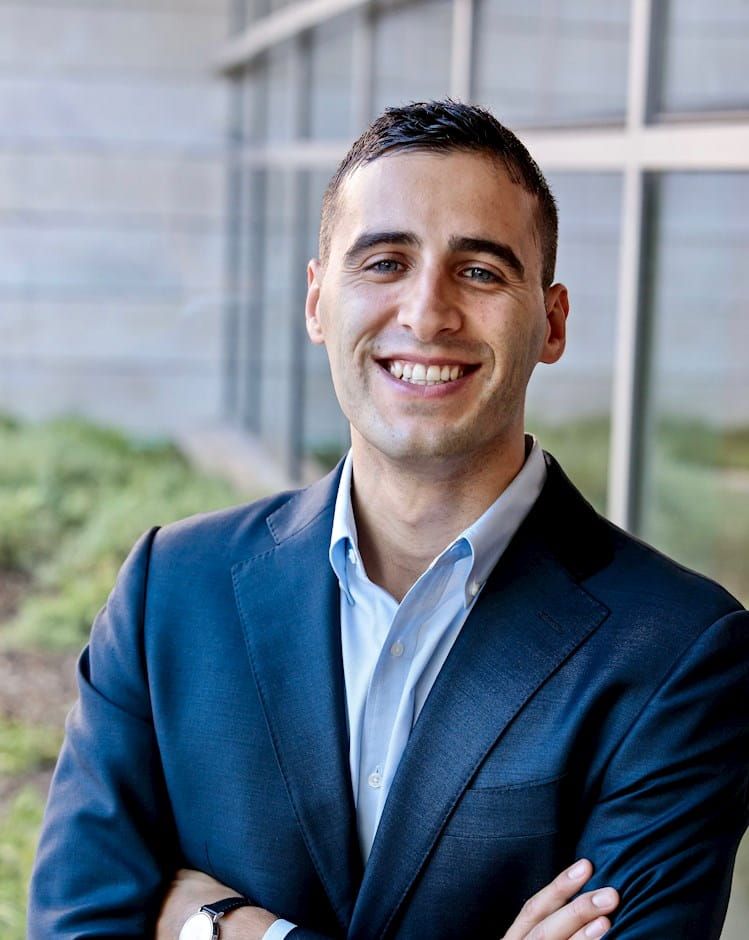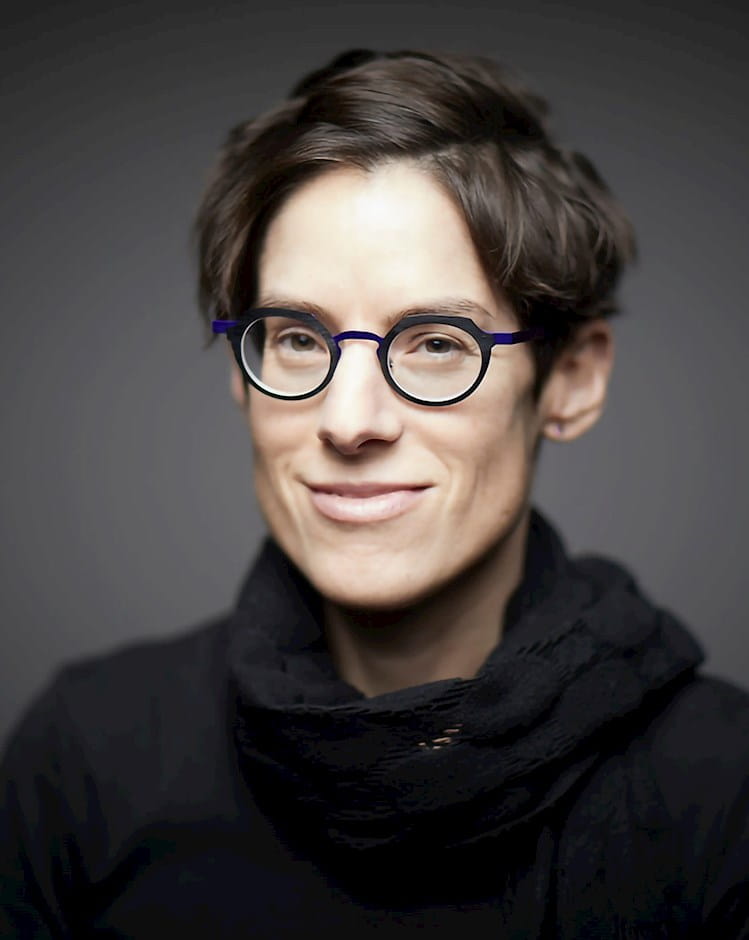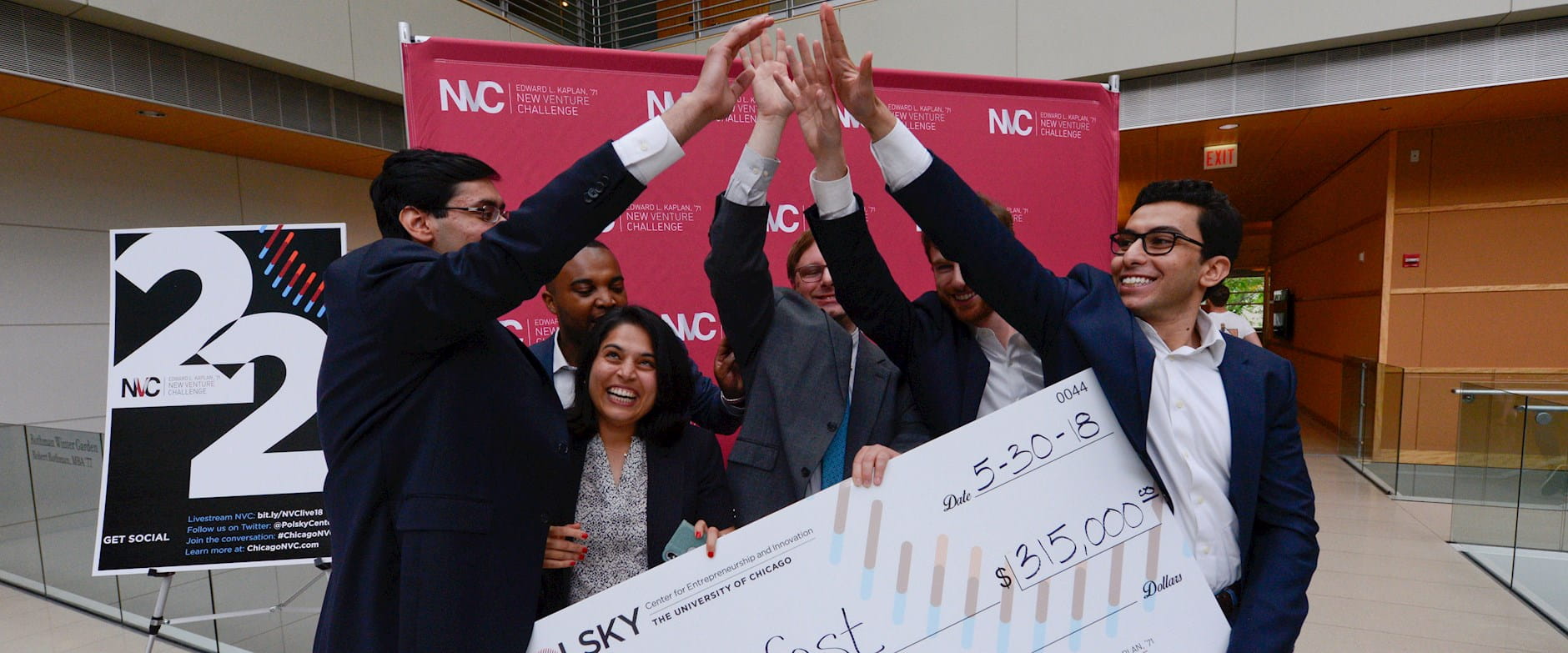
MBA Entrepreneurship

Booth’s innovative Entrepreneurship MBA curriculum is taught by world-class faculty who are leading researchers and seasoned practitioners.
Our interdisciplinary approach combines classroom courses in the fundamentals of entrepreneurship with exciting experiential programs and competition courses. Students consult with real-world companies, develop business ideas in experiential lab classes, and apply classroom learning to competitions and internships within the entrepreneurial community.
By competing in the Edward L. Kaplan, ’71, New Venture Challenge (NVC), one of the nation’s top-ranked accelerator programs, you can gain first-hand experience as an entrepreneur. Be part of a team that identifies a marketplace problem, offers a solution to that problem, and turns that idea into a business. Top teams in the NVC receive funding to embark on their new ventures. Run by our Polsky Center for Entrepreneurship and Innovation, the NVC has helped launch more than 300 companies to date including Grubhub, Braintree / Venmo and Simple Mills. The John Edwardson, ’72, Social New Venture Challenge (SNVC), the social impact track of the NVC, offers a similar experience for students who are focused on launching social enterprises.
Choose Your Courses
Customize your MBA education with a concentration in Entrepreneurship by choosing three courses to match your interests. Here are just a few of the options.
You will explore private equity from a number of perspectives, beginning with the entrepreneur/issuer, moving to private equity—venture capital and leveraged buyout—partnerships, and finishing with investors in private equity partnerships.
Improving your ability to assess the attractiveness of a new venture, anticipate the problems likely to be encountered as the business evolves, and predict its success or failure is the focus of this class. You will learn a set of qualitative models into which all entrepreneurial companies can be categorized.
Through class lectures, “game” assignments, and real-world cases, you will learn how to raise initial seed funding, compensate for limited human and financial resources, establish initial brand values and positioning, leverage a strong niche position, determine appropriate sourcing and sales channels, and develop execution plans in sales, marketing, product development, and operations.
This course is designed to allow students who have advanced to the second round of the New Venture Challenge to develop their ideas into businesses. Student teams will work largely on their own to develop their businesses.
This course requires a high level of individual investment, group coordination, and professionalism. Students form teams at the beginning of the course and, each week, these teams evaluate new venture opportunities.
To see all courses offered at Booth, visit our course catalog.
Our Distinguished Faculty in This Area
At Chicago Booth, you’ll work with faculty who conduct pioneering research, collaborate with entrepreneurial and private equity leaders, and bring their own entrepreneurial experiences into the classroom.
Spotlight on Research
Chicago Booth Review and other publications regularly feature the insights of Chicago Booth scholars.
The Polsky Center for Entrepreneurship and Innovation fuels the next generation of entrepreneurs and innovators with the knowledge, skills, and experience they need to turn their ideas into successful companies, products, and services.
The Polsky Center runs the Edward L. Kaplan, ’71, New Venture Challenge (NVC), which is recognized as one of the top accelerator programs in the nation along with accelerators such as Y Combinator and Techstars. Polsky has more than 60 professionals on staff and works with seasoned entrepreneurs and investors to provide guidance and support along the entrepreneurial journey.
The center manages the Svider Private Equity Program, which includes a variety of networking opportunities and experiential programs such as the Private Equity/Venture Capital Lab class and the Innovation Fund Associates program. These opportunities prepare students for a potential career in private equity and venture capital.
In recent years, the Polsky Center has helped Chicago Booth emerge as a leading university for training students on the model of entrepreneurship through acquisition (ETA), the process of running a search fund and seeking a company to acquire and manage. ETA resources include an annual conference, podcast series, and class at Booth, as well as additional resources for students interested in this career path.
Polsky is also home to the University of Chicago’s technology transfer office, which manages the technology and invention portfolio emerging from faculty research. Through events such as the Collaboratorium, MBA students and scientists come together to bring these nascent scientific discoveries to the market.
Learn more about the Polsky Center
Beyond the Classroom
Develop your skills, meet new people, and build a dynamic global network. As an MBA entrepreneurship student at Booth, you’ll have many opportunities to get involved in student groups, competitions, and other activities.







































